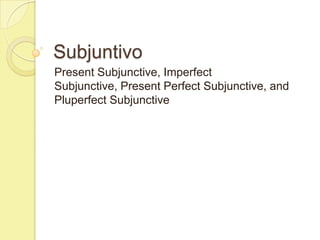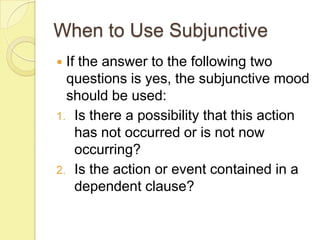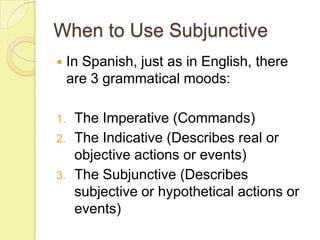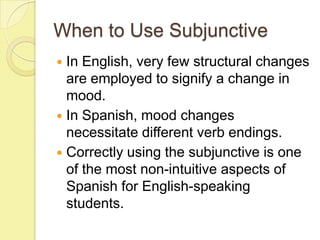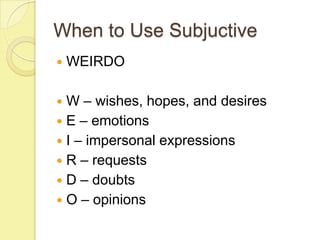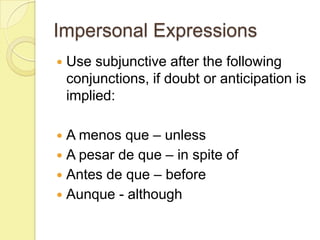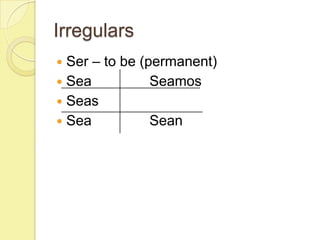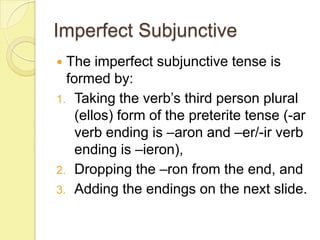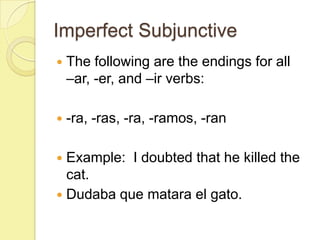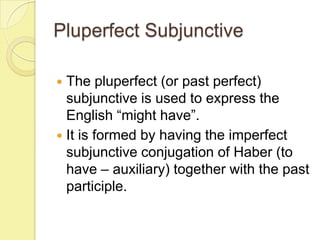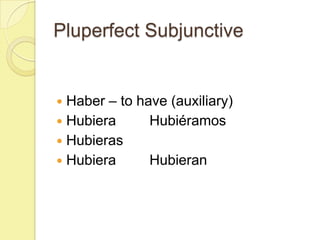The document discusses the different types of subjunctive mood in Spanish, including the present subjunctive, imperfect subjunctive, present perfect subjunctive, and pluperfect subjunctive. It explains when each form is used and how they are conjugated. The main uses of the subjunctive include expressing wishes, doubts, emotions, opinions, and hypothetical situations. Key irregular verbs in the subjunctive are also identified.
